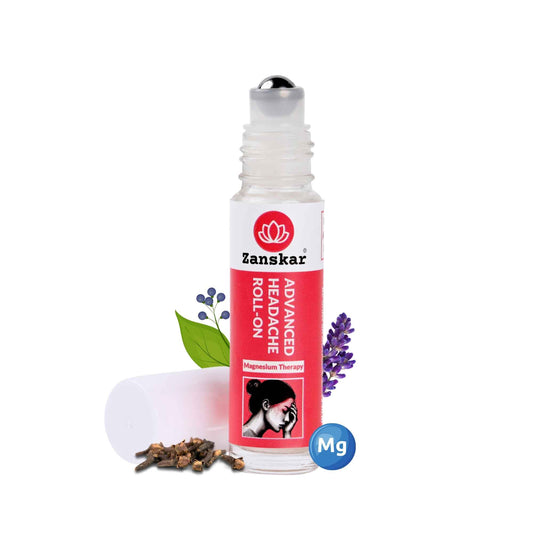
When it comes to managing pain and inflammation, Nonsteroidal Anti-Inflammatory Drugs (NSAIDs) have long been the popular choice. They come in various forms: aspirin (such as Disprin), ibuprofen (such as Nurofen), naproxen (such as Naprosyn) or diclofenac (such as Volini). They offer quick relief from discomfort and are readily available over-the-counter. But before you reach for that familiar bottle, it’s essential to be aware of the hidden dangers that accompany these seemingly harmless pain relievers. While NSAIDs provide relief, they can also bring about some serious side effects that we need to pay attention to. In this article, we’ll delve into the darker side of NSAIDs and explore safer alternatives for managing pain.
What Exactly are NSAIDs?
NSAIDs are a group of medications designed to ease pain, reduce inflammation, and lower fever by targeting specific enzymes in our body. These enzymes, known as cyclooxygenases (COX), are responsible for producing prostaglandins, which are hormone-like substances that trigger inflammation, pain, and fever during illness or injury. By blocking these COX enzymes, NSAIDs reduce the production of prostaglandins, providing the much-needed relief.
The Unseen Harm of NSAIDs on Pain Relief
• Gut Troubles: One of the most significant drawbacks of NSAIDs is their tendency to wreak havoc on our gastrointestinal (GI) system. Frequent use or high doses of these drugs can erode the protective lining of our stomach and intestines, leading to stomach pain, ulcers, and even severe bleeding that can be life-threatening.
• Heart and Blood Vessels at Risk: Research has shed light on the potential cardiovascular risks associated with NSAIDs, particularly the selective COX-2 inhibitors. These drugs may disrupt the balance of prostaglandins, impacting blood clotting and blood vessel function, and increasing the chances of heart attacks and strokes, especially in those with pre-existing heart conditions.
• Kidney Woes: NSAIDs are known to impair kidney function by affecting blood flow to these vital organs. Regular use of NSAIDs might lead to acute kidney injury or exacerbate existing kidney problems, putting extra strain on these important filters of our body.
• Allergic Surprises: For some unfortunate individuals, NSAIDs can trigger allergic reactions, resulting in skin rashes, hives, or even severe anaphylactic reactions, which can be life-threatening.
• Unfriendly Drug Interactions: NSAIDs can also interfere with the efficacy of other medications, particularly blood thinners and certain anti-hypertensive drugs, potentially reducing their effectiveness and causing unwanted side effects.
• Masking the Underlying Issues: NSAIDs may provide temporary relief, but they aren’t a cure. Relying solely on these drugs to manage pain might mask underlying health problems, delaying proper diagnosis and treatment.
Seeking Safer Solutions for Pain Relief
• Acetaminophen: For those wary of NSAIDs, acetaminophen offers a safer alternative. It is generally gentler on the stomach, but it’s crucial to stick to recommended dosages to avoid potential liver damage.
• Embrace Physical Therapy: Physical therapy can work wonders for musculoskeletal pain and certain chronic conditions. It helps manage pain, enhances mobility, and aids in healing without relying on medications.
• Topical Treatments: When pain is localized, topical creams, gels, or patches containing analgesic compounds like lidocaine or capsaicin can offer targeted relief without systemic risks.
• Live a Healthy Life: Adopting a healthy lifestyle, comprising a balanced diet, regular exercise, and ample rest, can significantly contribute to pain management and overall well-being.
• Embracing Mind-Body Techniques: Mindfulness practices such as meditation, yoga, and deep breathing exercises can effectively manage pain by reducing stress and promoting relaxation.
Conclusion
While NSAIDs may seem like the ultimate solution for pain relief, their hidden risks should not be underestimated. Prolonged or excessive use of these drugs can lead to serious complications, especially for individuals with specific health conditions. It is crucial to be informed and consult healthcare professionals before relying on NSAIDs as a regular pain management strategy. By exploring safer alternatives and staying informed about the potential dangers of NSAIDs, we can strike a balance between pain relief and safeguarding our long-term health.
Learn More About Zanskar Health for Chronic Pain
If you have joint or muscle pain that makes it hard to move, Zanskar offers the most advanced full stack pain relief solutions for you.
Now available to purchase, Zanskar® Advanced Pain Healing Cream has a unique formulation of natural ingredients like Arnica, Vitamin B6, MSM and Capsaicin, which is trusted by over 20L+ pain sufferers globally. It provides lasting relief from muscle and joint discomfort that you can feel good about. Get your fix before stocks run out - buy now.
You can also gain access to therapeutic exercises and stretches for your condition by downloading the Zanskar Health physiotherapy mobile app. Additionally, you’ll have a personal care team to guide, support, and tailor our program to you, including behavioral and nutritional coaching.
Download our mobile app here 👉 download and track your exercise streak.
Medical Review: This article is written by Dr Nishtha Mittal (Senior Health Content Editor at Zanskar Health) and has been medically reviewed by Dr Rashi Goel (Senior Physiotherapist at Zanskar Health). This article and its contents are provided for educational and informational purposes only and do not constitute medical advice or professional services specific to you or your medical condition.








